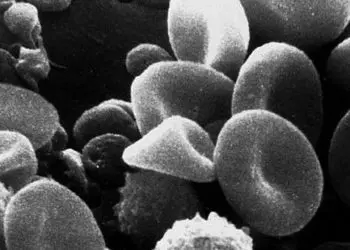Prenatal lead exposure and calcium intake linked to postnatal growth
1. Low level exposure to lead (< 5.0 μg/dL) during pregnancy was associated with a subsequent adverse effect on infant growth at 2 years of age.
2. The association between lead exposure and stunted growth remained significant for mothers who consumed a below average amount of calcium in their diet when compared to the remaining study population.
Evidence Rating Level: 2 (Good)
Study Rundown: Childhood lead exposure is detrimental to growth and development. As lead is known to cross the placenta and previous research has linked low dietary calcium to increased gastrointestinal absorption of lead, maternal calcium intake may act as a potential mediator of clinically significant lead exposure in-utero. Researchers focused this study on investigating the potential association between low prenatal lead exposure, maternal calcium intake, and postnatal child development at various stages. It was found that low maternal levels of lead at delivery were associated with a decrease in weight and height when children were 24 months old. This relationship was statistically significant for mothers who had low prenatal intake of calcium, but not for those who ingested an average amount or greater than average amount of calcium when compared to the study cohort. Results may be limited by poor follow-up, lack of generalizability, dietary self-report, and possible maternal exposure to other pollutants. However, clinicians should be aware of this possible association and may advise pregnant and future mothers to avoid sources of lead, while encouraging calcium intake.
Click to read the study published in Pediatrics
Relevant Reading: Maternal low-level lead exposure and fetal growth
In-Depth [prospective cohort]: A total of 1150 pregnant women (average age of 30.2 years) and their newborn infants (47.4% female) from the Mothers and Children’s Environmental Health study in South Korea were included for analysis. Blood lead levels were measured in mothers at 20 weeks gestation and at the time of delivery. Infant lead levels were also obtained from cord blood samples. Infants’ weight and length were measured at birth, 6, 12, and 24 months of age. Participants self-reported dietary intake over a period of 24 hours. Mean maternal blood lead level was 1.25 μg/dL at early gestation and at time of delivery. Mean calcium intake was 541 mg/day. Lead levels during delivery were negatively associated with infant weight (z = -0.28, CI: -0.48 to -0.09) and length (z = -0.28, CI: -0.49 to -0.06) at 24 months. When stratified by calcium intake, the negative association remained significant for the mothers who had a mean calcium intake < 541 mg/day (p < .05).
More from this author: Individually taught, parent-implemented social intervention may improve autism outcomes, Enhanced oral patient presentation feedback leads to student improvement, Parents desensitized with increasing exposure to movie violence/sex, Family meal dynamics linked to childhood weight, Physician-rating sites influential in choosing primary care doctors
Image: CC/Drpoulette Mexico City
©2014 2 Minute Medicine, Inc. All rights reserved. No works may be reproduced without expressed written consent from 2 Minute Medicine, Inc. No article should be construed as medical advice and is not intended as such by the authors, editors, staff or by 2 Minute Medicine, Inc.






